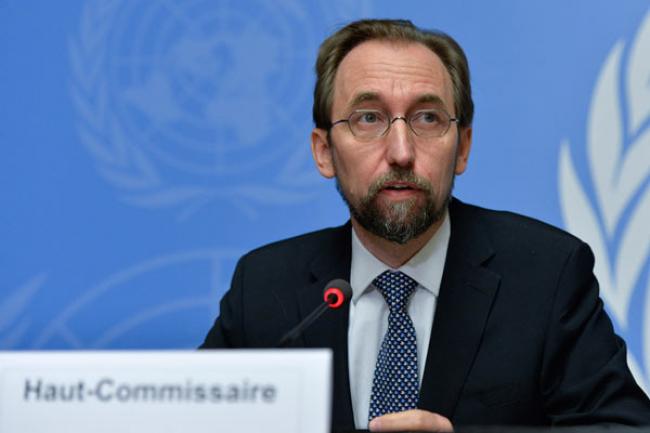27 May 2015, 03:41 pm Print

“When I left Burundi, on 15 April, 6,000 Burundians had fled the country due to fear of political violence and intimidation. Five weeks later, that number has swelled by a further 110,000 frightened people,” UN High Commissioner for Human Rights Zeid Ra’ad Al Husseintold the Council.
“The attempted coup of 13 May, and the assassination of opposition leader Zedi Feruzi on Saturday, has further intensified tension,” he added, expressing alarm for the violence of the Imbonerakure militia, a strong supporter of President Nkurunziza’s government.
Burundi is a country with “deep and terrible knowledge of the potential consequences of outbreaks of violence,” and after a decade of growing recovery, and prosperity, these recent events are a “significant setback,” Zeid said.
He commended the efforts of the African Union, International Conference on the Great Lakes region, the East African Community, European Union (EU) and the UN Special Envoy for the Great Lakes to draw all actors to the negotiating table and protect human rights and the rule of law.
On a positive note, Zeid commended Tunisia for “turning its back on the oppression of the past,” and for its resolute adoption of human rights goals.
“The entire Middle East and North Africa region would certainly look very different today if leaders of other countries had had the wisdom to take a similar approach,” he said.
In Europe and South-East Asia, people are “embarking on a desperate voyage out of fear and need,” and are merely fleeing the relentless conflict, wide -ranging oppression of their human rights and repression and persecution, Zeid said.
In the Mediterranean, over 1,800 have died at sea so far this year, and 7,000 people were rescued in just the first three days of this month, he told the Human Rights Council, expressing concern that the disproportionate focus on enforcement, and the militarization of that enforcement, raises a large number of concerns, beyond the urgent and absolute need to protect the lives.
“Any law enforcement response to migrant smuggling must respect international standards for human rights,” he stressed.
As for the European Agenda on Migration issued two weeks ago and which proposes quotas for the resettlement of 20,000 refugees within the EU, he said this small number of places is wholly inadequate to the magnitude of the crisis and urged far greater emphasis on expanding channels for migration into Europe, including for low-skilled labour and family reunification.
“A more humane, less mean-spirited response to their plight would be more worthy of Member States of the United Nations,” emphasized Zeid.
Meanwhile, in South-East Asia, in the first quarter of this year, 25,000 people have set out to sea from Myanmar and Bangladesh and at least 1,050 people have died at sea.
While Indonesia and Malaysia are providing a temporary lifesaver, it is not enough.
“I hope the discrimination that targets this vulnerable minority will swiftly be reversed, and that the Rohingya will be able to take their rightful place in the country where they were born,” he said.
He also expressed dismay that in Australia, people on boats intercepted at sea are sent to detention centres, and he called for the protection of human rights at places of transit and at borders, and a “principled campaign” against xenophobia and discrimination.
Lastly, on South Sudan, he said that despite the best efforts of the African Union, Intergovernmental Authority for Development (IGAD) and the UN, in the past two weeks, more people have sought refuge at protection sites managed by the UN Mission in in the country, UNMISS.
“Some had to trek hundreds of kilometres by foot, and braved attacks by armed groups along the way,” he said.
Armed attacks also directly threaten some UNMISS protection sites, and 7 people were recently killed at one of the locations, in Upper Nile state. Humanitarian access has been severely constrained, and aid agencies have pulled out of several locations in Unity state due to fighting.
“It has been almost 18 months since this senseless conflict erupted, with virtually no accountability for the numerous violations of international humanitarian law and human rights law that have been committed,” he said.
The conflict itself is, at least in part, a direct consequence of unresolved issues from the past.
Photo: UN Photo/Jean-Marc Ferré
- Amid rising attacks on Hindus, Jamaat candidate Krishna Nandi promises ‘kith and kin’ treatment
- Fresh shock for minorities: Hindu youth burnt alive in Bangladesh
- More than 5,000 killed during massive crackdown launched on Iranian protesters, says human rights body
- Family alleges forcible disappearance of woman by Pakistani agencies
- Caught under wheels: Hindu man dies trying to stop fuel theft in Bangladesh





-1763561110.jpg)
